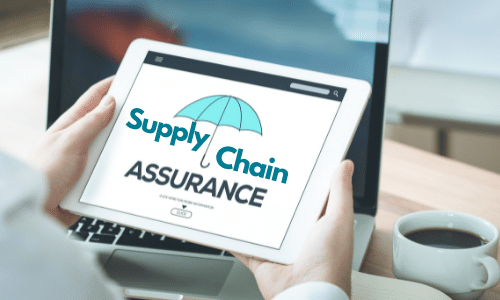Top 10 Tips for Labour Supply Chain Assurance from HMRC*
*Published 13th May 2021
Why should you assure your labour supply chain?
Failure to take reasonable steps to ensure the legitimacy of your labour supply chain can expose your company to significant legal, financial, and reputational risks, and your company may be forced to cease operations entirely as a result.
You also risk being required to pay taxes and National Insurance Contributions. If someone acting on your behalf facilitates tax evasion, you may not be able to recover VAT payments and may face criminal charges with an unlimited fine. Proper checks are also required for worker protection and the prevention of modern slavery.
How to assure your labour supply chain
Using the supply chain due diligence principles of checking, acting, and reviewing will assist you in applying effective risk management and robust due diligence to ensure the integrity of your supply chains, thereby significantly reducing your risk exposure.
When effective due diligence is not conducted by all parties in a supply chain, fraud, abuse, and exploitation are easier to conceal; therefore, checks performed only in relation to your immediate suppliers and customers may not be sufficient. It is critical to protect your business by verifying the legitimacy, legality, and legitimacy of your suppliers, supplies, customers, employees, and labour supply.
Key Supply Chain Due Diligence Principles

Top 10 Tips for Supply Chain Assurance:
1. Make sure your labour supplier is legitimate- Check to see where your workers come from, how they're being paid, and the legitimacy of those arrangements.
2. Check your labour suppliers' VAT registration.
3. Make sure your labour supply is commercially sustainable- -If the business charge is too low the supplier is unlikely to be able to meet its statutory tax obligations and make a profit. It may also be an indicator of exploitation, modern slavery or illegal working.
4. Check if workers are being paid correctly- you must check that workers are being paid their contractual rate and that this complies with the National Minimum Wage legislation.
5. If you work in the construction industry, make sure you understand the Construction Industry Scheme (CIS).
6. Be aware of your obligations if you outsource your payroll or are engaging employees through a third party- Check whether travel and subsistence arrangements and employment intermediary reporting comply with HMRC requirements and if agency rules apply to agency workers being treated as self-employed.
7. If you use agency or temporary workers or are an agency providing workers, you must check who should operate PAYE or you may be liable for unpaid taxes or national insurance.
8. If you are a medium or large-sized private or voluntary sector organisation- from 6 April 2021 you will also need to check whether the off-payroll working rules apply.
9. Consider putting in place reasonable procedures to prevent the criminal facilitation of tax evasion by anyone acting on their behalf. Failure to do so may result in prosecution and unlimited fines.
10. Check that appropriate licences are held and in order, for example, a Gangmasters and Labour Abuse Authority (GLAA) licence or a Security Industry Authority (SIA) licence.
The Bottom Line
Companies who do not comply with the law, risk exposure, their business could be prevented from operating entirely, risk reputational damage and are liable for unpaid taxes and national insurance.
Read more HERE.
Get in touch!
Datum RPO can help you to manage your agency providers, ensuring that the workers they provide are legally compliant, as well as deliver significant cost savings.
Download eGuide: How to Audit Your Recruitment Agencies









.png?width=180&height=180&name=Ecovadis%202024%20(200%20x%20200%20px).png)
